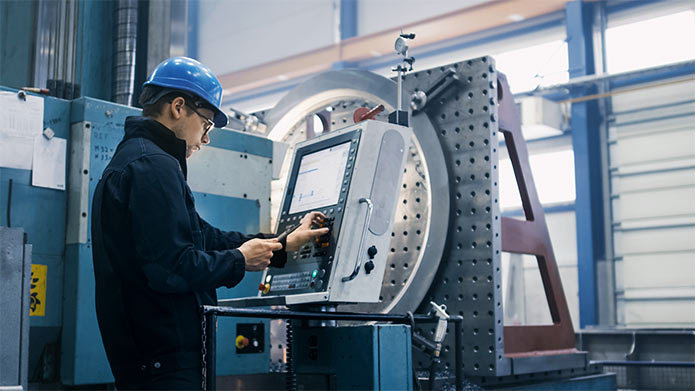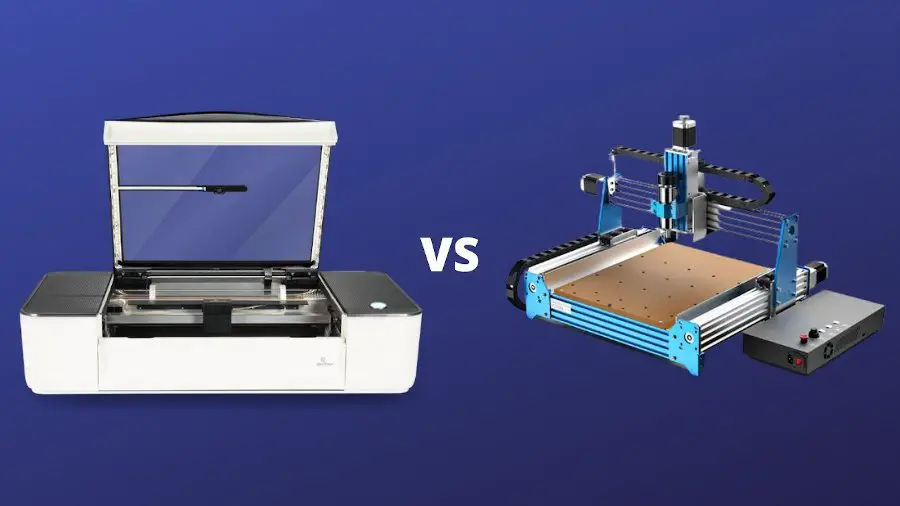Table of Contents
As the world becomes more technologically advanced, the use of CNC machines is increasing rapidly. These machines are capable of creating intricate and complex shapes with precision accuracy, making them indispensable in many industries. However, with the rise in their usage, the question arises: does a CNC machine need a license?
The answer is not as straightforward as one might think. While there are no specific laws that require a license for the use of CNC machines, there are certain regulations that must be followed to ensure their safe and legal operation. In this article, we will explore the various legal requirements and safety measures that must be taken when using CNC machines.
No, owning and operating a CNC machine does not require a license. However, there may be regulations and guidelines that need to be followed, depending on the location and intended use of the machine. For example, industrial CNC machines used in a professional setting will likely need to meet safety requirements and may require permits. It’s important to research and comply with all applicable regulations to ensure safe and legal use of a CNC machine.
Does a CNC Machine Need a License?
CNC machines are used in various industries for manufacturing and production purposes. CNC machines are automated and controlled by computers, making them highly efficient and precise. However, the question arises, does a CNC machine need a license? In this article, we will explore this topic in detail.
What is a CNC Machine?
CNC stands for Computer Numerical Control. A CNC machine is a manufacturing tool that uses pre-programmed software to control the movement of machinery. CNC machines can be used to cut, drill, and shape various materials, including wood, metal, and plastic.
CNC machines are highly efficient and accurate, making them popular in various industries, including automotive, aerospace, and electronics. The software used in CNC machines allows for precision and accuracy, making them ideal for mass production.
Do CNC Machines Need a License?
The answer to whether a CNC machine needs a license is not straightforward. It depends on the type of machine and its intended use. For example, if you are using a CNC machine for personal use, such as creating a custom piece of furniture, then you do not need a license.
However, if you are using a CNC machine for commercial purposes, then you may require a license. The license requirements may vary depending on your location and the type of industry you are working in. It is always recommended to check with your local authorities to determine whether a license is required.
Benefits of Having a License
Having a license for your CNC machine can provide several benefits. Firstly, it ensures that you are using the machine safely and within the regulations. A license also ensures that you are using the machine for its intended purpose and not misusing it.
Having a license can also provide a sense of professionalism and credibility. Clients and customers may be more inclined to work with you if they know that you have the necessary licenses and permits. Additionally, having a license may increase your chances of getting a loan or financing.
Types of Licenses
There are several types of licenses that may be required for CNC machines. The type of license required may depend on the size and capabilities of the machine, as well as the intended use.
Some common types of licenses include:
– Manufacturing license: This license is required for businesses that produce and sell products using CNC machines.
– Operator license: This license is required for individuals who operate CNC machines.
– Safety license: This license is required to ensure that the CNC machine is being used safely and within the regulations.
CNC Machine Vs. Manual Machines
CNC machines offer several advantages over manual machines. Firstly, CNC machines are highly accurate and precise, which can improve the quality of the final product. CNC machines are also faster and more efficient than manual machines, making them ideal for mass production.
Manual machines, on the other hand, require more skill and experience to operate. They are also slower and less accurate than CNC machines. However, manual machines may be more suitable for small-scale projects or custom work.
CNC Machines and Intellectual Property
CNC machines can be used to create products that are protected by intellectual property laws, such as patents and trademarks. It is important to ensure that the products you create using a CNC machine do not infringe on any existing intellectual property rights.
Additionally, if you are using a CNC machine to create products for a client, it is important to have a written agreement that outlines the ownership and use of the intellectual property rights.
Conclusion
In conclusion, whether a CNC machine needs a license depends on the type of machine and its intended use. If you are using a CNC machine for personal use, you may not require a license. However, if you are using a CNC machine for commercial purposes, it is recommended to check with your local authorities to determine whether a license is required.
Having a license for your CNC machine can provide several benefits, including ensuring that you are using the machine safely and within the regulations, increasing your credibility and professionalism, and improving your chances of getting financing.
Overall, CNC machines offer several advantages over manual machines, including accuracy, speed, and efficiency. However, it is important to ensure that the products you create using a CNC machine do not infringe on any existing intellectual property rights.
Frequently Asked Questions
Does a CNC Machine Need a License?
In general, a CNC machine does not require a license to operate. However, there may be specific regulations and laws that apply to the use of CNC machines in certain industries or settings. For example, if you are using a CNC machine to produce parts for medical devices, you may need to comply with certain quality standards and regulations in order to ensure the safety and efficacy of the final product. Similarly, if you are using a CNC machine to produce firearms, you may need to comply with federal and state laws regarding the manufacture and distribution of firearms.
That being said, it is important to note that operating a CNC machine can be dangerous if proper safety precautions are not taken. It is essential to receive proper training and follow all relevant safety guidelines in order to prevent accidents and injuries.
What Types of CNC Machines Require a License?
As mentioned earlier, most CNC machines do not require a license to operate. However, there may be certain types of CNC machines that are subject to specific regulations or laws. For example, if you are using a CNC machine to produce parts for nuclear power plants, you may need to obtain a license from the Nuclear Regulatory Commission in order to ensure that the parts meet the required quality and safety standards.
Similarly, if you are using a CNC machine to produce components for military equipment or aerospace applications, you may need to comply with specific regulations and obtain the necessary approvals from government agencies in order to ensure that the components are safe and reliable.
What Are the Safety Precautions for Operating a CNC Machine?
Operating a CNC machine can be dangerous if proper safety precautions are not taken. Some of the key safety measures that should be followed when operating a CNC machine include wearing appropriate personal protective equipment (PPE), such as safety glasses and gloves, ensuring that the machine is properly grounded and the electrical connections are secure, and avoiding loose clothing or jewelry that could become caught in the machine.
It is also important to ensure that the workpiece is properly secured and that the cutting tool is properly aligned and in good condition. Additionally, the machine should be operated at a safe speed and any abnormal sounds or vibrations should be investigated immediately.
What Training is Required to Operate a CNC Machine?
The level of training required to operate a CNC machine will depend on the specific machine and the industry in which it is being used. In general, however, operators should have a basic understanding of the principles of machining and the operation of the CNC machine.
This may include training in programming and operating the machine, as well as instruction on proper safety procedures and maintenance. Some employers may also require certification or other credentials in order to operate a CNC machine.
How Much Does a CNC Machine Cost?
The cost of a CNC machine can vary widely depending on the size, complexity, and capabilities of the machine. Entry-level machines may cost a few thousand dollars, while high-end machines with advanced features can cost hundreds of thousands of dollars.
In addition to the initial purchase cost, there may be ongoing expenses associated with operating and maintaining the machine, such as the cost of tooling, software updates, and replacement parts. It is important to factor in these costs when considering the overall cost of a CNC machine.
In conclusion, the question of whether a CNC machine needs a license is a complex one. While there are no federal laws mandating licensing for CNC machines, local regulations may apply. It is important to research and understand the laws in your area to ensure compliance.
Furthermore, obtaining a license for your CNC machine can have benefits beyond just legal compliance. It can demonstrate your commitment to safety and quality, and may even help with insurance rates and customer trust.
Ultimately, whether or not you choose to obtain a license for your CNC machine is up to you. However, it is important to weigh the potential benefits and consequences and make an informed decision based on your individual circumstances.
Request a quote today!
[contact-form-7 id="1578" title="Contact form"]
Please compress the file into a ZIP or RAR file before uploading. Alternatively, send through your RFQ by email.
enquires@unitymanufacture.com





